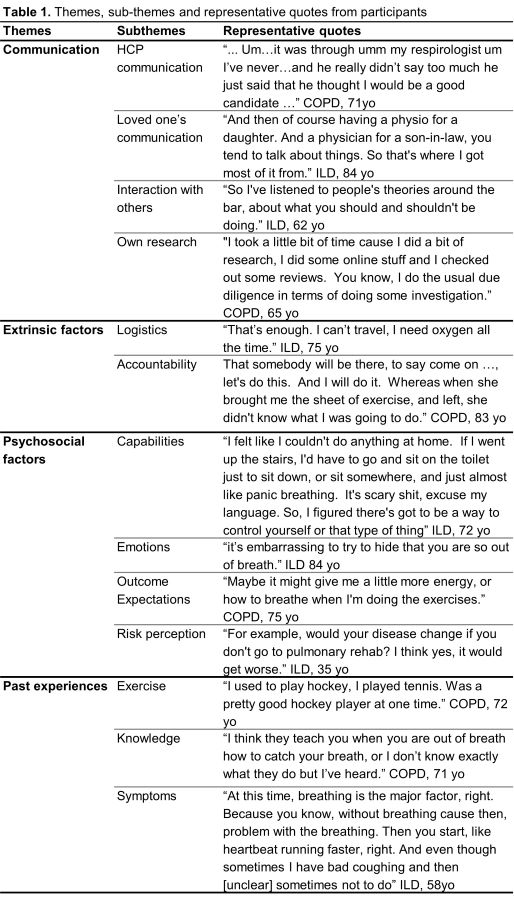Abstract
There is ongoing interest in the factors that influence those referred for pulmonary rehabilitation (PR) to accept enrollment. We conducted semi-structured interviews informed by the Health Action Process Approach (HAPA) framework with 11 individuals with chronic respiratory diseases (CRD) referred to a PR program. Content analysis was performed.
Eleven individuals participated [accept PR (n=10), decline PR (n=1); chronic obstructive pulmonary disease (n=5), interstitial lung disease (n=6); female (n=5), median age = 72 (Q1 63.5-Q3 75.0]. Four main themes and 13 sub-themes were identified: 1) communication (healthcare professional communication, loved one?s communication, interaction with others and own research), 2) extrinsic factors (logistics and accountability), 3) psychosocial factors (capabilities, emotions, outcome expectations and risk perception), and 4) past experiences (exercise, knowledge and symptoms) (table 1).
Participants perceived their enrolment in PR to be impacted by: information they acquired from sources other than their health providers, logistics associated with accessing PR, their current capabilities, the belief PR was their last hope for improvement and their past experiences and knowledge about exercise and symptoms.
